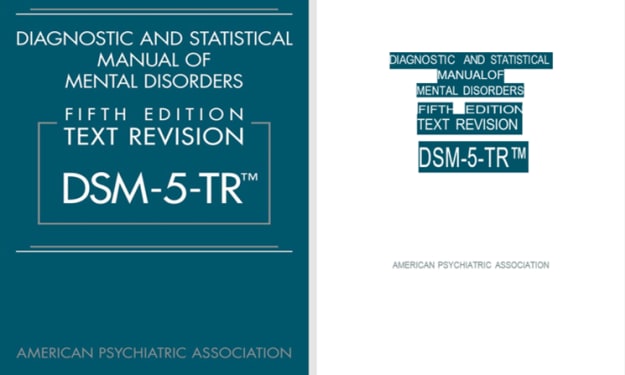The Impact of Cognitive Bias on Decision-Making in the Workplace
Understanding and Mitigating the Impact

Cognitive biases refer to the systematic patterns of deviation from norm or rationality in judgment, whereby inferences about other people and situations may be drawn in an illogical fashion. These biases are often a result of the brain’s attempt to simplify information processing and can have a significant impact on decision-making in the workplace, leading to faulty decisions and potentially negative consequences (Kahneman, 2011). It is important for both organizations and individuals to be aware of these biases and implement strategies to mitigate their influence.
One common cognitive bias that can affect decision-making in the workplace is confirmation bias, which is the tendency to search for, interpret, favor, and recall information in a way that confirms one’s preexisting beliefs or hypotheses (Nickerson, 1998). This bias can lead individuals to overlook alternative explanations or options and make decisions that are not fully informed. For example, a manager who has a preconceived notion that a particular employee is not capable of handling a promotion may only pay attention to behaviors that confirm this belief, rather than considering all the relevant information and evidence.
The sunk cost bias is another cognitive bias that can impact decision-making in the workplace. It refers to the tendency to continue investing time, money, and other resources into a decision, regardless of the potential costs or benefits, due to a desire to avoid the perception of loss (Arkes & Blumer, 1985). This bias can lead individuals to make decisions that are not in the best interest of the company, such as continuing to invest in a failing project or maintaining a relationship with a difficult client.

Other cognitive biases that can have a significant impact on decision-making in the workplace include anchoring bias, which is the tendency to rely too heavily on the first piece of information encountered when making a decision (Tversky & Kahneman, 1974), and the halo effect, which is the tendency to allow one positive trait to influence the perception of the individual or situation as a whole (Thorndike, 1920).
To address these biases and improve decision-making in the workplace, organizations can implement strategies such as diversity training, which has been shown to reduce the influence of cognitive biases and improve decision-making (Page, 2007). In addition, the use of structured decision-making processes, such as decision matrices or analysis, can help to objectively consider all relevant options and minimize the influence of personal biases (Bazerman & Moore, 2013).
In addition to the strategies that organizations can implement to mitigate the influence of cognitive bias on decision-making, there are also steps that individuals can take to reduce the impact of these biases on their own decision-making.
One approach that can be helpful is to actively seek out diverse perspectives and information when making decisions. This can help to reduce the influence of confirmation bias and provide a more well-rounded view of the situation. It can also be helpful to take the time to carefully consider all options and alternatives, rather than relying too heavily on the first piece of information encountered (anchoring bias).
Another useful strategy is to be aware of one’s own cognitive biases and actively try to overcome them. For example, an individual can try to identify when they may be exhibiting confirmation bias and make an effort to seek out information that challenges their preexisting beliefs. It can also be helpful to have someone else review and provide feedback on decisions, as they may be able to identify biases that the individual may not be aware of.
In addition, individuals can try to practice mindfulness and stay present in the decision-making process. This can help to reduce the influence of emotions and allow for more logical and reasoned decision-making (Kahneman, 2011). By implementing these strategies, individuals can work to reduce the impact of cognitive bias on their own decision-making and improve the quality of their decisions.

Clearly, cognitive biases can have a significant impact on decision-making in the workplace and beyond, leading to faulty decisions and potentially negative consequences. It is important for organizations to be aware of these biases and implement strategies to mitigate their influence, such as diversity training and structured decision-making processes. By understanding and addressing these biases, organizations can improve the quality of their decision-making and increase their chances of success
But organizations are made up of individuals, each with their own unique perspectives and experiences. So. any training or processes will only be as effective when those individuals together embrace the mindest and practices of any intervention. Thus, it is important for both organizations and individuals to be aware of the potential impact of cognitive bias and take steps to mitigate its influence on decision-making.
References:
Arkes, H. R., & Blumer, C. (1985). The psychology of sunk cost. Organizational Behavior and Human Decision Processes, 35(1), 124–140.
Bazerman, M. H. &. Moore, D. A. (2013). Judgment in Managerial Decision Making, 8th ed. Wiley & Sons.
Nickerson, R. S. (1998). Confirmation bias: A ubiquitous phenomenon in many guises. Review of General Psychology, 2(2), 175–220.
Page, S. (2007). The difference: How the power of diversity creates better groups, firms, schools, and societies. Princeton, NJ: Princeton University Press.
Thorndike, E. L. (1920). Intelligence and its uses. Harper’s Magazine, 140, 227–235.
Tversky, A., & Kahneman, D. (1974). Judgment under uncertainty: Heuristics and biases. Science, 185(4157), 1124–1131.
About the Creator
Donna L. Roberts, PhD (Psych Pstuff)
Writer, psychologist and university professor researching media psych, generational studies, human and animal rights, and industrial/organizational psychology
Enjoyed the story? Support the Creator.
Subscribe for free to receive all their stories in your feed. You could also pledge your support or give them a one-off tip, letting them know you appreciate their work.






Comments (1)
Great insights and potential solutions here. Cognitive bias is a potential issue in any area of life, but I never realized the implications in the workplace with the examples you laid out. Thank you!